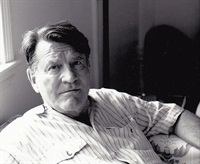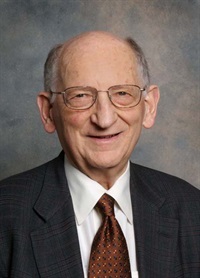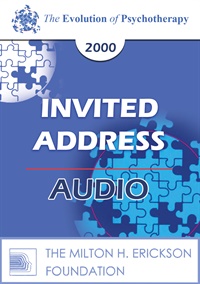EP00 Invited Address 10a - What Therapists Have in Common in Ideas and Practice - Jay Haley, MA
- Average Rating:
- Not yet rated
- Topic Areas:
- Invited Addresses | History of Psychotherapy | Therapy Practice
- Categories:
- Evolution of Psychotherapy | Evolution of Psychotherapy 2000 | Pioneers in Couples and Family Therapy
- Faculty:
- Jay Haley, MA | Otto Kernberg, MD
- Duration:
- 1 Hour 16 Minutes
- Format:
- Audio Only
- Original Program Date:
- May 29, 2000
- License:
- Never Expires.
Description
Description: This address traces key shifts in psychotherapy, from the rise of family and brief therapy to evolving views on the unconscious and client privacy. It addresses the tension between therapy as science versus art and considers its role in settings like corrections and foster care. The importance of ethical standards and clearly defining psychotherapy is emphasized. Afterwards there is a discussion, including Otto Kernberg offering commentary on what he calls Haley's oversimplification of therapy history.
Syllabus Description: Often meetings on therapy focus on differences among therapists; overlooked is what they have in common. Basic ideas are hidden in social and political actions.
Educational Objectives:
- To describe how students in training often are concerned about differentiating themselves and so differ from each other.
- To describe three ways teachers can encourage differing ideas for various reasons.
*Sessions may be edited for content and to preserve confidentiality*
Credits
Handouts
| Timestamped Transcript (914.7 KB) | 21 Pages | Available after Purchase |
| Ericksonian Learning Snapshot (254.5 KB) | 2 Pages | Available after Purchase |
Faculty

Jay Haley, MA Related Seminars and Products
Jay Haley (M.A., 1953, Stanford University) was Director of Family Therapy Institute of Washington, D.C. He was one of the leading exponents of the strategic/interpersonal approach to family therapy. Haley served as Director of the Family Experiment Project at the Mental Research Institute and as Director of Family Therapy Research at the Philadelphia Child Guidance Clinic. He has authoered seven books, co-authored two and edited five. Additionally, he has more than 40 contributions to professional journals and books. Haley is the former editor of Family Process, and the first recipient of the Lifetime Achievement Award of The Milton H. Erickson Foundation.

Otto Kernberg, MD Related Seminars and Products
Otto Kernberg, MD, is a psychoanalyst and professor of psychiatry at Weill Cornell Medical College. He is most widely known for his psychoanalytic theories on borderline personality organization and narcissistic pathology. Director of the Personality Disorders Institute at the New York Presbyterian Hospital, Westchester Division, and Professor of Psychiatry at the Weill Medical College of Cornell University. Dr. Kernberg is a Past-President of the International Psychoanalytic Association. He is also Training and Supervising Analyst of the Columbia University Center for Psychoanalytic Training and Research. Dr. Kernberg is the author of twelve books and co-author of twelve others. His most recent books are Psychotherapy for Borderline Personality: Focusing on Object Relations and Handbook of Dynamic Psychotherapy for Higher Level Personality Pathology.


